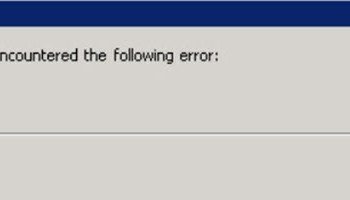Puzzle: Write a Shortest Code to Produce Zero.

It has been a long time since we have puzzle on this blog. So I have decided to post this puzzle. You have to write a shortest code which produces digit 0 (zero).
If you think this puzzle is easy, it is not true. I have two very simple but interesting condition for you.
Condition 1: Do not use numbers and arithmetic calculation
Condition 2: Do not use 0 in the code
Condition 3: Do not use function len()
Well, that’s it. So if you were thinking to write code like SELECT 1-1 or PRINT 0 or SELECT LEN(”). You can’t do that. You are not allowed to use numbers, arithmetic calculation or the digit 0 in the code.
Let me show you one valid solution.
SELECT ISDATE('a')Now, here is the challenge for you. The above code produces the result 0 (zero) and the length of the code is 18.
Here is the final condition for you,
Condition 4: Your Solution should have length lesser than 18 characters.
Now think of the interesting solution and post the result in the comment.
I will be happy to see what you can come up with. If you are also subscribed to my newsletter at https://blog.sqlauthority.com/contact-me/sign-up/ please expect a surprise gift for you if you get the correct answer.
Reference: Pinal Dave (https://blog.sqlauthority.com)






726 Comments. Leave new
SELECT ISJSON(”)
select count(”)from dual
select isdate(”)
Even shorter
print abs (”)
PRINT ISDATE(‘a’)
PRINT left($,1)
print char(48)
print isdate(”)
One more: unclear if this violates condition 1, but: print sin(”)
One more: print sign(”)
print~-1
The main idea to use boolean logic came from another user on Twitter, I helped get it down a few chars though.
PRINT @@ERROR
select char(48)
PRINT @@ERROR
(having no previous errors)
select $
select 1-1
Note to self: Read the rules first :-(
PRINT char(48)
print @@error
select char(48)
SELECT LOG(1,2)
Select char(48)
Ah, that’s no good. Used a number. “Print @@error” works, though not deterministic. My best deterministic item is select isjson(”)
print char(48) – 14
print @@error – 13
SELECT SIGN(”)